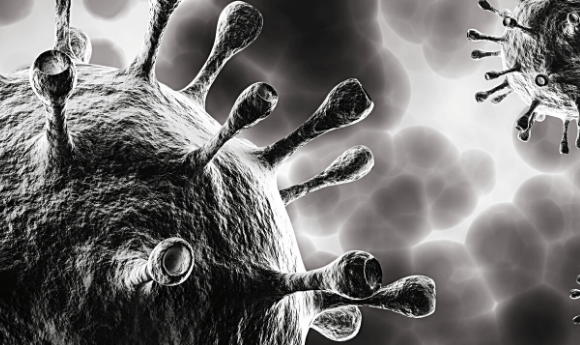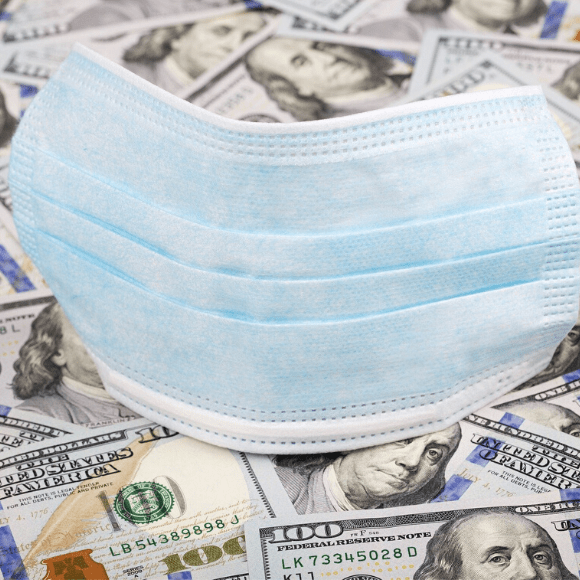Why are Black people more likely to die of COVID-19 in the US and UK?

Just as the current protests in the USA highlight racial inequalities in the US justice system, COVID-19 is directing a spotlight at inequalities in healthcare and medicine.
Currently, the social injustices suffered by Black people in the USA are being punctuated by scenes of protest and anger tearing across the nation, a response to the devastating death of George Floyd while under police custody. This expression of collective pain, while shocking to some, is not simply in response to the disgraceful death of one man but speaks to the running and repeated inequalities experienced by Black people in the USA.
These inequalities do not solely relate to matters of justice, police intervention and judicial prejudice, but are also inveterate in matters of housing, access to social and medical care [1]. As such, in addition to the current protests, these inequalities are also reflected in another crisis currently gripping the USA and the world: COVID-19.
New data, recently made available by APM Research Lab, has displayed a disproportionately high death rate for Black populations in the USA. Correct as of 19 May, COVID-19 is responsible for 99,000 deaths in the USA and there is race and ethnicity data for 89% of these cases. Using this data, AMP Research showed that 54.5 deaths were observed per 100,000 in America’s Black population, over 2.4 times as high as the death rate for the White population of 22.7 deaths per 100,000 [1].
This disparity is reflected in technicolor in the UK, a country that has been seen to chastise the USA for its prejudices while seemingly forgetting the aberrations of its colonial past and failing to address its own issues of racial disparity. While the rights of British citizens to criticize actions abroad are not directly diminished by this fact, outspoken opinions on foreign affairs must be matched with action closer to home. Black males and females are 4.2- and 4.3-times more likely than a White person to die of COVID-19 [2].
To blame this disparity exclusively on social inequality would be reductive and contrary to progress. When adjusting for region, urban/rural habitancy, IMD decile, household composition, socioeconomic status and health, the likelihood of death from COVID-19 is still almost twice as high for Black people as White people in the UK. This indicates that a significant proportion of this increased risk is due to an as-of-yet undiscovered factor.
Equally though, as over half of the increased risk can be attributed to the factors excluded above – only one of which was health – it would be folly to dismiss the disparity as a result of “greater risk profiles” and underlying health conditions, as some officials have tried in order to brush off the issue.
 Trump: controlling COVID-19 or courting controversy?
Trump: controlling COVID-19 or courting controversy?
On 14 April 2020, US President Donald Trump announced that he will withdraw US funding from the WHO; Tristan Free discusses the implications of this action.
In the UK, while only 2% of households are considered to be overcrowded, 12% of Black households are overcrowded. Ethnic minorities are also overrepresented on the front lines of the fight against COVID-19, with over 21% of the UK’s National Health Service staffed by ethnic minorities – who make up only 14% of the UK populace [3].
In the USA it has been indicated by a paper – yet to be peer reviewed – that there are inequalities in the provision of testing and treatment for COVID-19, drawn along lines of race. Rubix Life Sciences (MA, USA) used intelligent data networks to analyze the billing information of 27,344 patients from seven states who screened positive for one or more symptom of COVID-19 [4]. Rubix founder Reginald Swift disclosed that the paper indicated Black patients were 6-times less likely to be treated or tested for the virus [5].
The locations of testing centers also often display a bias towards more heavily White populated areas. For instance, in the state of Texas (USA) it was found that testing centers were disproportionately located in predominantly White neighborhoods in four of the six largest cities in the state [6].
This gulf in treatment and outcomes for Black Americans should, unfortunately, come as no surprise. A 2003 review conducted by the Institute of Medicine (US) Committee on Understanding and Eliminating Racial and Ethnic Disparities in Health Care, completed on the request of the US congress stated that, “race and ethnicity remain significant predictors of the quality of health care received.” This review offered suggestions to improve this situation, including recommendations for data collection and research initiatives [7]. Seventeen years on, this gap in medical and healthcare provision is still painfully clear.
The realm of scientific research, often lauded as unbiased and apolitical, is also guilty of racial bias in the scope of research funded and carried out. Quoted in the New Scientist in October 2019, Alicia Martin (Broad Institute, MA, USA) stated that “European ancestry populations make up 16 per cent of the global population, but approximately 80 per cent of participants in genetic studies.” How can researchers possibly make the claim to be making solutions for all while this is still the case, particularly when you consider the increased value provided by African genomes due to their significant diversity?
As much as we may wish to believe that both the protests currently ongoing in the USA and the overrepresentation of Black people in COVID-19 mortality figures are due to new or one-off incidences such as the tragic death of George Floyd, or the unprecedented spread of a novel virus, this is simply not the case. Instead, these incidents are theatre spotlights, illuminating insidious inequalities that persist in society, forcing the rest of the world to take note of issues that have been at the front and center of the stage for a long time yet only attended to by a select few. It has long been time for us to stop being an audience in this theatre and to universally engage in a movement that has been left to those that it directly affects for far too long. Black lives matter.
If you would like to keep up to date with our content on coronavirus, you can sign up for our site here, where you can subscribe to our newsletters for free!





